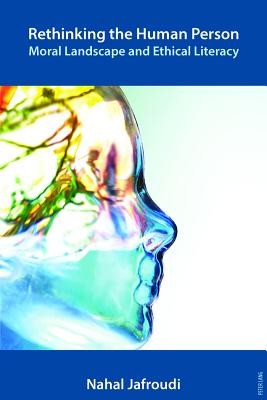
- We will send in 10–14 business days.
- Author: Nahal Jafroudi
- Publisher: Peter Lang Ltd, International Academic Publishers
- ISBN-10: 1906165807
- ISBN-13: 9781906165802
- Format: 15 x 22.4 x 2.3 cm, minkšti viršeliai
- Language: English
- SAVE -10% with code: EXTRA
Reviews
Description
Recent developments in the natural and social sciences have brought great benefits to humanity, both in terms of our material wellbeing and our intellectual and conceptual capacities. Yet, despite a broad ethical consensus and highly developed innate faculties of reason and conscience, there seems to be a significant discrepancy between how we ought to behave and how we actually behave, leading to a disregard for the dignity of human persons across the globe. This book suggests that the problem arises from various misunderstandings of the nature of the self and that the solution could lie in adopting a holistic concept of the human person within the context of a carefully cultivated ethical literacy. It argues that the ideas of the Iranian philosopher Ostad Elahi (1895-1974) provide a powerful and compelling alternative to the dominant post-Enlightenment understanding of selfhood, education and morality.
EXTRA 10 % discount with code: EXTRA
The promotion ends in 21d.21:54:43
The discount code is valid when purchasing from 10 €. Discounts do not stack.
- Author: Nahal Jafroudi
- Publisher: Peter Lang Ltd, International Academic Publishers
- ISBN-10: 1906165807
- ISBN-13: 9781906165802
- Format: 15 x 22.4 x 2.3 cm, minkšti viršeliai
- Language: English English
Recent developments in the natural and social sciences have brought great benefits to humanity, both in terms of our material wellbeing and our intellectual and conceptual capacities. Yet, despite a broad ethical consensus and highly developed innate faculties of reason and conscience, there seems to be a significant discrepancy between how we ought to behave and how we actually behave, leading to a disregard for the dignity of human persons across the globe. This book suggests that the problem arises from various misunderstandings of the nature of the self and that the solution could lie in adopting a holistic concept of the human person within the context of a carefully cultivated ethical literacy. It argues that the ideas of the Iranian philosopher Ostad Elahi (1895-1974) provide a powerful and compelling alternative to the dominant post-Enlightenment understanding of selfhood, education and morality.


Reviews